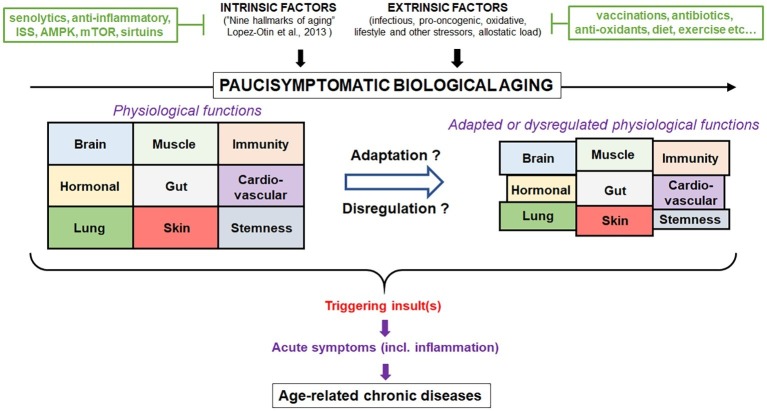Figure 1.
Conceptualization of the contribution of aging as a physiological process. Biological aging is a normal process that results from intrinsic (hallmarks of aging) and extrinsic factors (stress). In the absence of major insult during lifespan, individuals will experience very few symptoms (paucisymptomatic) related to change in health status despite the loss of physiological functions. However, upon certain triggering, uncontrolled inflammation may occur resulting in a persistent activation and disbalance of physiological functions leading to age-related diseases. Intervention strategies to modulate aging and reduce the susceptibility to diseases are represented. Aging can only be successfully modulated as long as it is considered a multifaceted process and not a disease in need of a specific cure. Ultimately, aging represents a time-dependent lifelong process, where under constant pressure the organism adapts or dysregulates which excludes the concept that aging is a disease.

